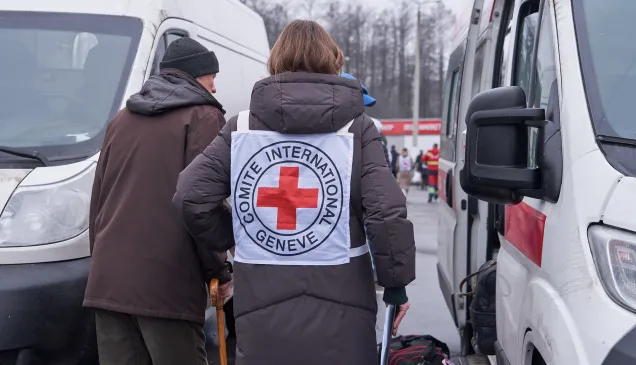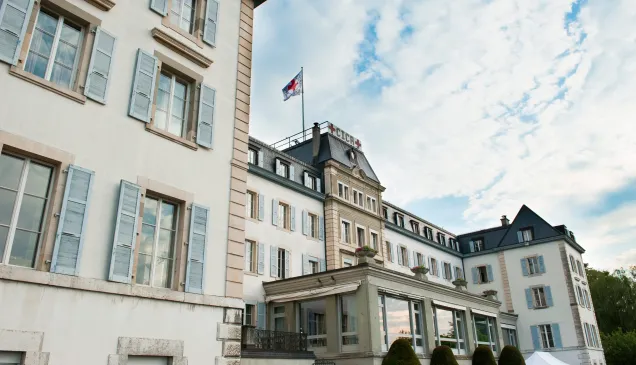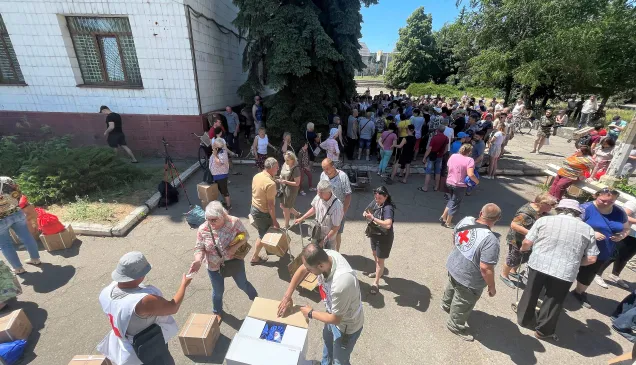These visits to prisoners of war on all sides in recent months have allowed the ICRC to inform hundreds of families about their loved ones. Many more families need answers; the ICRC must have full access to POWs and civilian internees, wherever they are held, in order to provide those answers.
The nations that agreed to the Geneva Conventions committed to protecting the lives and dignity of people deprived of their liberty during armed conflict. All sides in armed conflict benefit from ICRC's visits to POWs and civilian internees, a key humanitarian activity and legal obligation," said ICRC President Peter Maurer.
The Geneva Conventions, as well as customary international humanitarian law (IHL), spell out the ICRC's right to visit all POWs and civilian internees, wherever they are held, in international armed conflicts. These visits help ensure respect for their life and dignity by reminding the detaining authorities that the captives' treatment and their conditions of internment or detention must correspond to standards laid down by IHL. This includes access to medical care, food, and water. They also cannot be tortured, intimidated or exposed to violence. In addition, they must be shielded from public curiosity.
"This is about the fundamental idea of protecting the individual person caught in the machine of armed conflict, an individual person who needs to be treated humanely, and who has a family deeply worried about their loved one," said Florence Anselmo, the head of the ICRC's Central Tracing Agency.
The Central Tracing Agency, which receives registration information from visits and directly from authorities, has provided hundreds of families on all sides with information about their missing loved ones since the beginning of the international armed conflict in Ukraine.
"On behalf of all the prisoners of war and their families, we will continue our bilateral dialogue with unabated determination to gain access to all people held captive," said Mr Maurer.
Note to editors and producers:
1. Families seeking information about missing relatives can contact the ICRC's CTA Bureau at ctabureau@icrc.org
or +41 22 730 3600 | +7495 626 54 26 | +380 800 300 155
2. Much of ICRC's work around POWs is confidential and dealt with in our bilateral dialogue with each party. We do not publicly share information about specific cases or the overall conditions or treatment. We are not publicly sharing the number of POWs we visit nor the number of names on lists that are shared with us by the parties to the armed conflict.
3. One of the ICRC's oldest programmes, the Central Tracing Agency (CTA) is enshrined in the Geneva Conventions. Dating to 1870, the CTA today is at the heart of the ICRC's efforts around the globe to protect and maintain family connections, search for and identify missing persons, protect the dignity of the dead, and ensure that the needs of missing people's families are addressed.
4. Established in 1863, the ICRC operates worldwide, helping people affected by armed conflict and armed violence and promoting the laws that protect victims of war. A neutral, independent and impartial organization, its mandate stems from the Geneva Conventions of 1949. it is based in Geneva, Switzerland, and works in more than 100 countries.
5. The ICRC has been working in Ukraine since 2014 with a team of over 600 staff members. Working closely with the Ukrainian Red Cross Society and our Red Cross Red Crescent Movement partners, we are increasing our response to the vast and growing humanitarian needs in Ukraine.
For more information, please contact:
Jason Straziuso, ICRC Kyiv (English)
jstraziuso@icrc.org, +41 79 949 35 12
Oleksandr Vlasenko, ICRC Kyiv (Ukrainian, English)
ovlasenko@icrc.org, +380 503 484 743
Fatima Sator, ICRC Kyiv (French, English)
fsator@icrc.org, +41 79 848 49 08
Galina Balzamova, ICRC Moscow (English, Russian)
gbalzamova@icrc.org, +7 903 545 35 34
Crystal Wells, ICRC Geneva (English)
cwells@icrc.org, +41 79 642 80 56
Matthew Morris, ICRC London (English)
mmorris@icrc.org, +44 7753 809 471
Frédéric Joli, ICRC Paris (French)
fjoli@icrc.org, +33 6 20 49 46 30
Elizabeth Gorman Shaw, ICRC Washington DC (English)
egormanshaw@icrc.org, +1 202 361 1566
Shuangfeng Zhang (Mandarin), ICRC Beijing
szhang@icrc.org, + 86 13810035522



